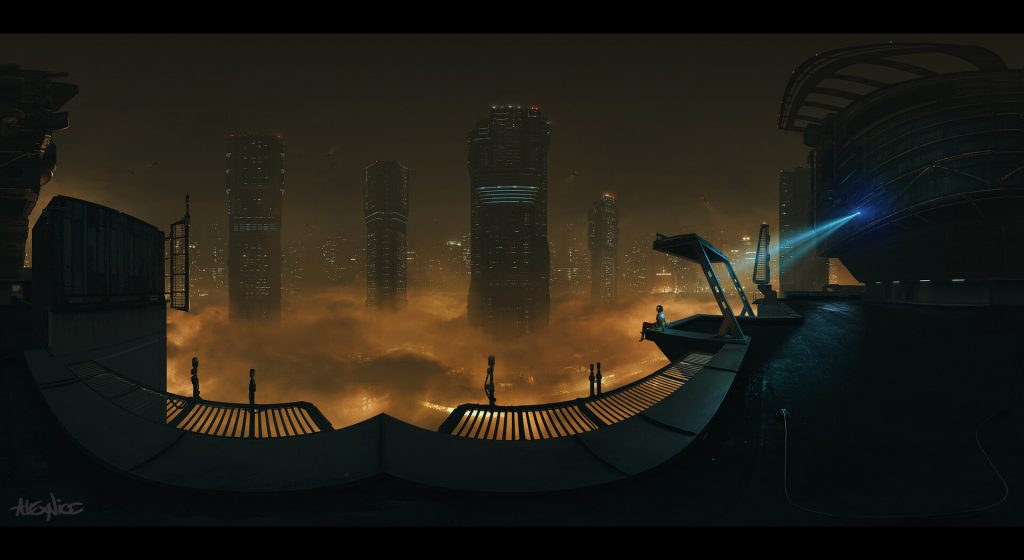Rtstation Masterclasses 3 ââ“ 02 ââ“ Advanced Key Art Illustration
An online learning feel unlike any other, the ArtStation Masterclasses offer sectional access to Q&A forums with 10 all-star artists at the acme of their field that users can collaborate with from anywhere they are in the earth.
Become Your Ticket
Early on Bird Disbelieve ends Feb 19.
A veteran of the entertainment industry, Masterclass Instructor Alex Prissy has over 15 years of experience every bit an Art Manager, concept artist and illustrator on films like TheJungle Book, Hunger Games, Oblivion, Pacific Rim, Elysium, Tron Legacy, and Astonishing Spider-human being, simply to name a few. As a member of the Art Directors Guild, Alex currently works in the Art Department every bit a Concept Illustrator collaborating with Directors and Production Designers to visualize ideas in the beginning stages of product.
Masterclass: Advanced Primal Art Illustration
Art Departments in the motion picture industry are constantly changing as new tools and applied science brand things easier and faster. However, with these new tools comes additional complexity. The never-ending claiming is finding a comfy balance between art and technology inside tight, uncompromising product schedules. As a professional artist for characteristic film, Alex will embrace his pipeline for creating a sci-fi environment set using diverse 2D and 3D applications. Throughout the lesson, we'll explore a few of the new side by side-gen tools available to us, and detect means to save time when creating professional production fine art. This lesson volition stay broad in scope then that it can apply to all levels of creative person regardless of feel, and focus on concepts rather than what buttons to printing.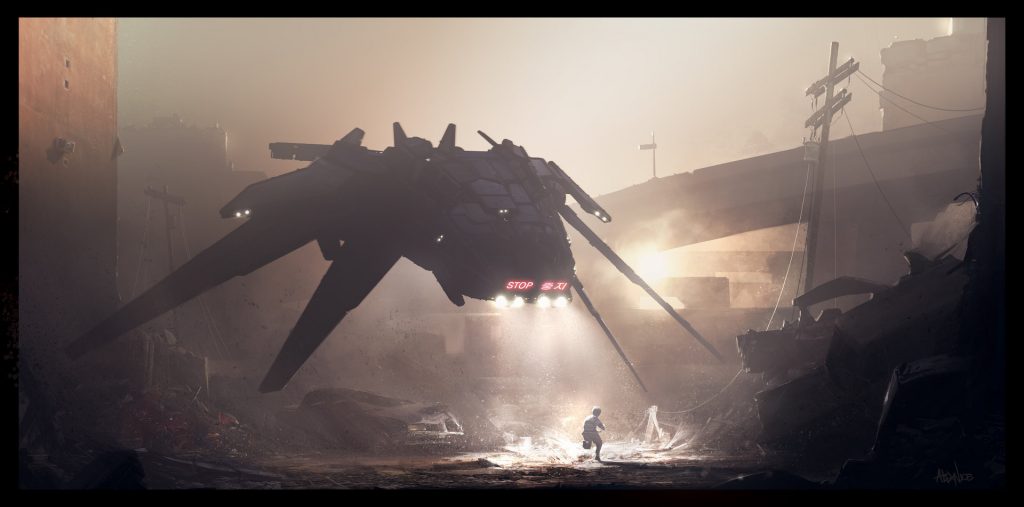
Tell us about one of your most valuable learning experiences on the job.
Well I've been in the picture industry for almost 15 years and worked on about twenty films. The most valuable learning feel I would say is learning how to keep a positive attitude regardless of the situation. Sometimes jobs go really challenging, and information technology's easy to get cynical nigh things. Don't give into the dark side! Stay positive and ever exercise the all-time you can. People who are pleasant to be around tend to always stay hired.
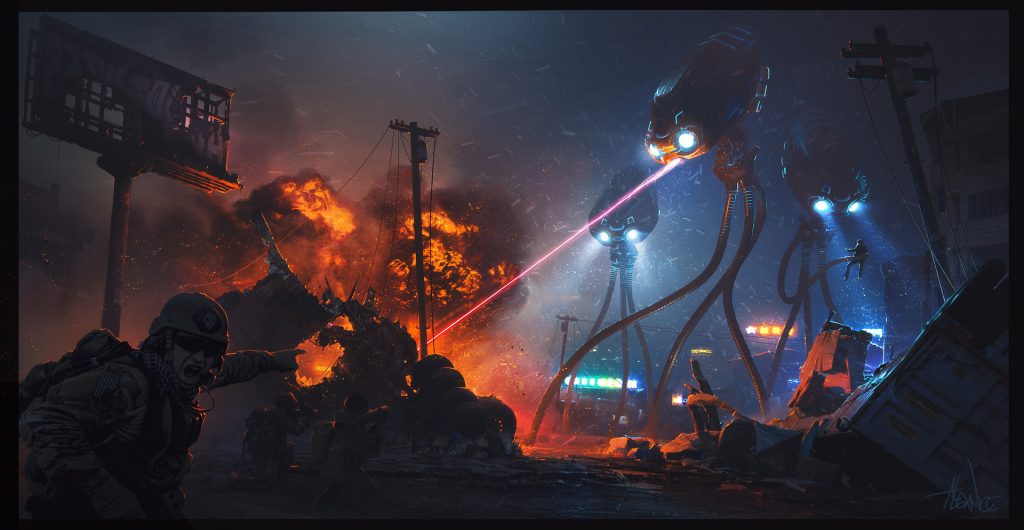
What is one thing that people who follow your course can look forward to or expect to learn?
I'm somewhat of a connoisseur of tutorials and I lookout them on my iPad in the background while I work quite often. I observe the best tutorials are the ones that broadly encompass the procedure rather than getting as well technical because in that location are varying levels of skilled artists. Because of that, I tried to practice demos that can relate to everyone and with the ultimate goal of sharing new workflows.
For my masterclass I did two demos. The outset 1 is a time-lapse using 3D to create an environment concept analogy. Then, I noticed in that location's a lot of 360° tutorials out there but they but they mostly focus on sketching or drawing in 360 and then just stopping there.
For my 2nd demo, I tried to practise something a little bit unorthodox. I started with a 360° panoramic photograph, turned that into a 3D scene, then painted on pinnacle of that in Photoshop. Going one footstep further, I brought my scene into a game engine to interactively explore in VR. That might seem similar a scrap of overkill, but going though a pipeline from start to finish should hopefully inspire some new ideas in those who watch.
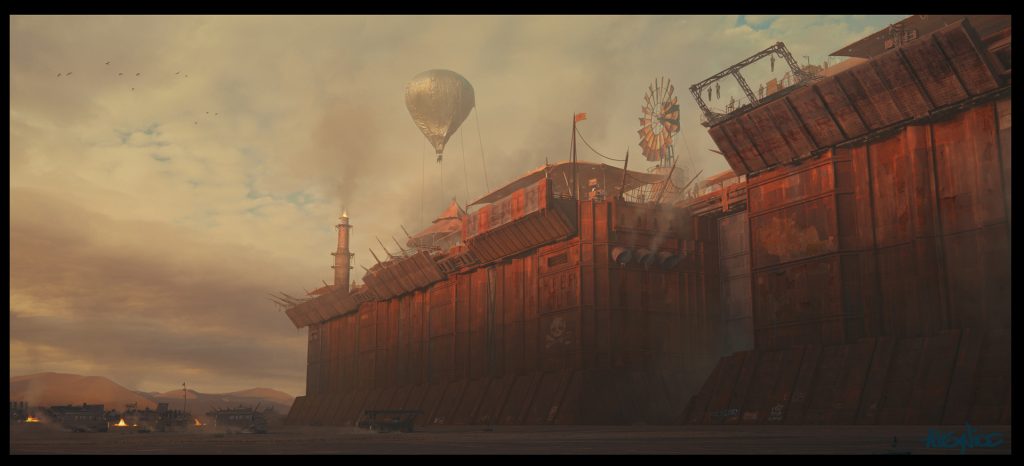 As someone who works as both a second and 3D generalist, how much practice you think that being comfortable in both is important to get a job in the manufacture?
As someone who works as both a second and 3D generalist, how much practice you think that being comfortable in both is important to get a job in the manufacture?
I call back we're in the process of seeing 3D becoming a pretty standard tool in moving-picture show design. In that location's only so many benefits and with GPU renderers like Octane, Redshift, Keyshot, and Vray, it'due south fast and efficient.
On the last two films I worked on, not only did I create copious amounts of traditional concept illustrations, just because I generally used 3D every bit a base, I was too able to bring my 3D environments into VR. 3D and interactive VR are irresolute Production Pattern. The power for the Director, Production Designer, or the cinematographer to spatially walk around inside my concept environments ready designs has been huge.
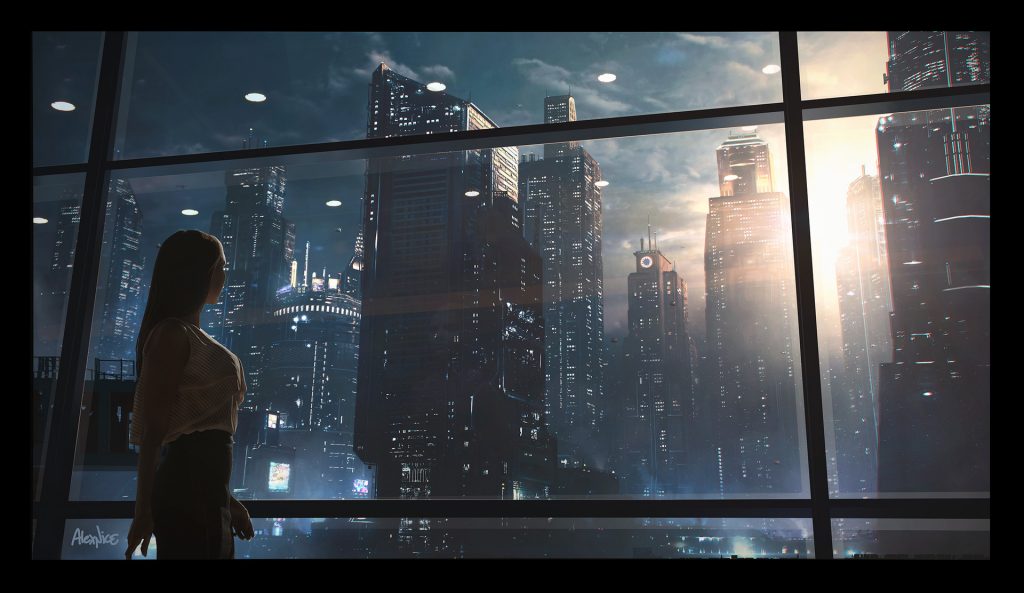
What was ane of your favourite recent projects to work on and why?
It may audio crazy, only my favorite job that I've worked on in a career of over 20 movies was the last motion-picture show I was on, John Wick: Parabellum. The reason why is considering I got to piece of work so closely with both the Director and besides the Cinematographer from The Shape of Water (a huge inspiration to me).
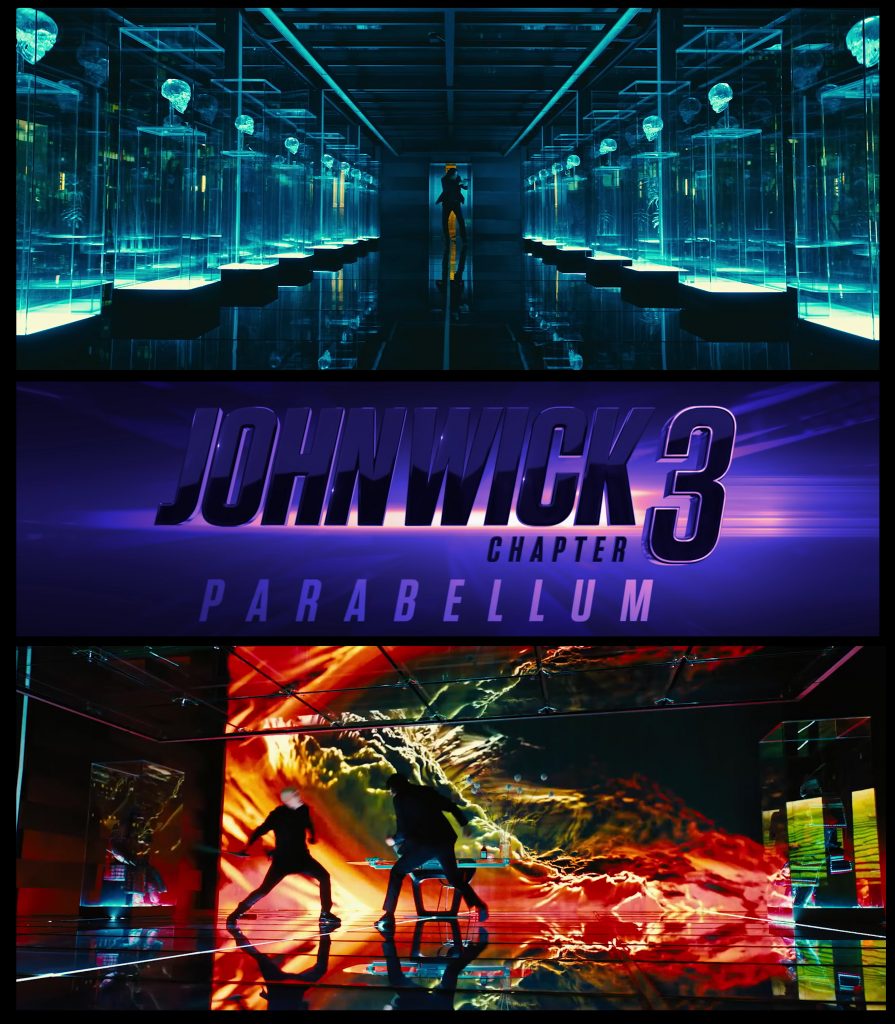 Together, we created a massive set blueprint made upwards almost completely of drinking glass. Starting with 2D concept art, I was then able to create this set in VR using Unreal Engine. This allowed usa to do interactive shot planning, set decoration, stunt-vis etc. Typically in movie, you only have a few days betwixt the time that the ready is the physically built, and filming. With VR, we were able to interactively walk the set months in advance.
Together, we created a massive set blueprint made upwards almost completely of drinking glass. Starting with 2D concept art, I was then able to create this set in VR using Unreal Engine. This allowed usa to do interactive shot planning, set decoration, stunt-vis etc. Typically in movie, you only have a few days betwixt the time that the ready is the physically built, and filming. With VR, we were able to interactively walk the set months in advance.
The big payoff on this project for me was being invited on to the real physical fix for filming and beingness able to walk through a design nosotros worked on for so many months. No words can describe how incredible information technology is to walk around something you helped create. It's surreal. This kind of stuff really excites me.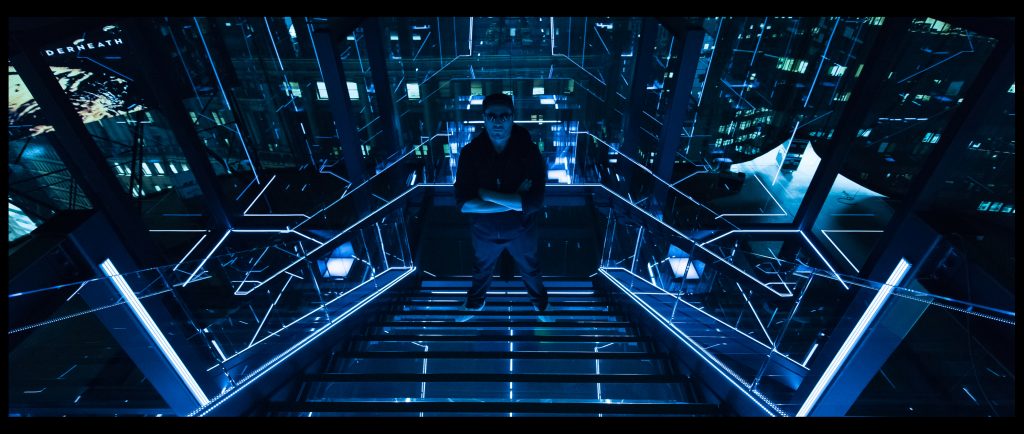
Notice out more than about ArtStation MasterClasses and save $fifty when yous buy your ticket by Feb nineteen.
Follow Alex Nice on ArtStation.
Source: https://magazine.artstation.com/2019/02/alex-nice/
